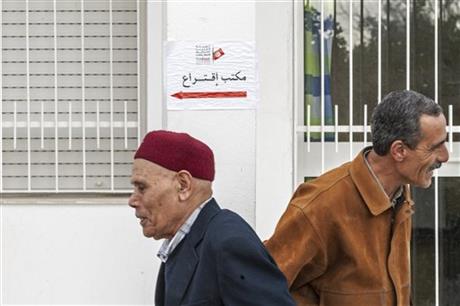 Tunisians voted on Sunday for a new president in a runoff between a
Tunisians voted on Sunday for a new president in a runoff between a
By BOUAZZA BEN BOUAZZA
symbol of the country’s previous regimes and a veteran human rights activist who came to power after the 2011 revolution.
The runoff between the two candidates is the third election in the last two months and represents the final stage in the country’s democratic transition since the Arab Spring revolution that overthrew long-ruling President Zine El Abidine Ben Ali.
Alone among the countries that experienced pro-democracy uprisings, Tunisia’s transition has remained on track.
“It is important because we don’t know ahead of time who will win, unlike in the past,” said Hatem Dekali, an employee of the national airline, as he cast his vote in the Tunis suburb of Carthage.
The contest pits Beji Caid Essebsi, an 88-year-old minister in previous Tunisian governments, against Moncef Marzouki, a rights activist who became interim prime minister after the revolution.
Essebsi is a favorite to win after taking 39 percent of the vote in last month’s first round and he has promised to restore the “prestige of the state” after the chaotic first years after the revolution marked by unrest and economic problems.
Marzouki, who took 33 percent of the vote last month, has warned that Essebsi, whose party also won October’s parliamentary election, will bring back the authoritarian policies of the previous regimes.
Tunisia’s moderate Islamists, who still have a great deal of backing in the country, aren’t officially backing either candidate, but are believed to lean toward Marzouki.
The eve of the election was marked by violence with a shotgun blast wounding a soldier near the city of Kairouan. Islamic radicals vowed further attacks on security forces in a video that surfaced on social networks Wednesday calling on people to boycott the election.
According to authorities, around 100,000 police and soldiers will secure the polls, and certain stations in the border regions with Algeria will close early because of security reasons.
With a rise in terrorist attacks after the revolution, security has been a major issue in the election campaign.
There are around 5.3 million registered voters.



